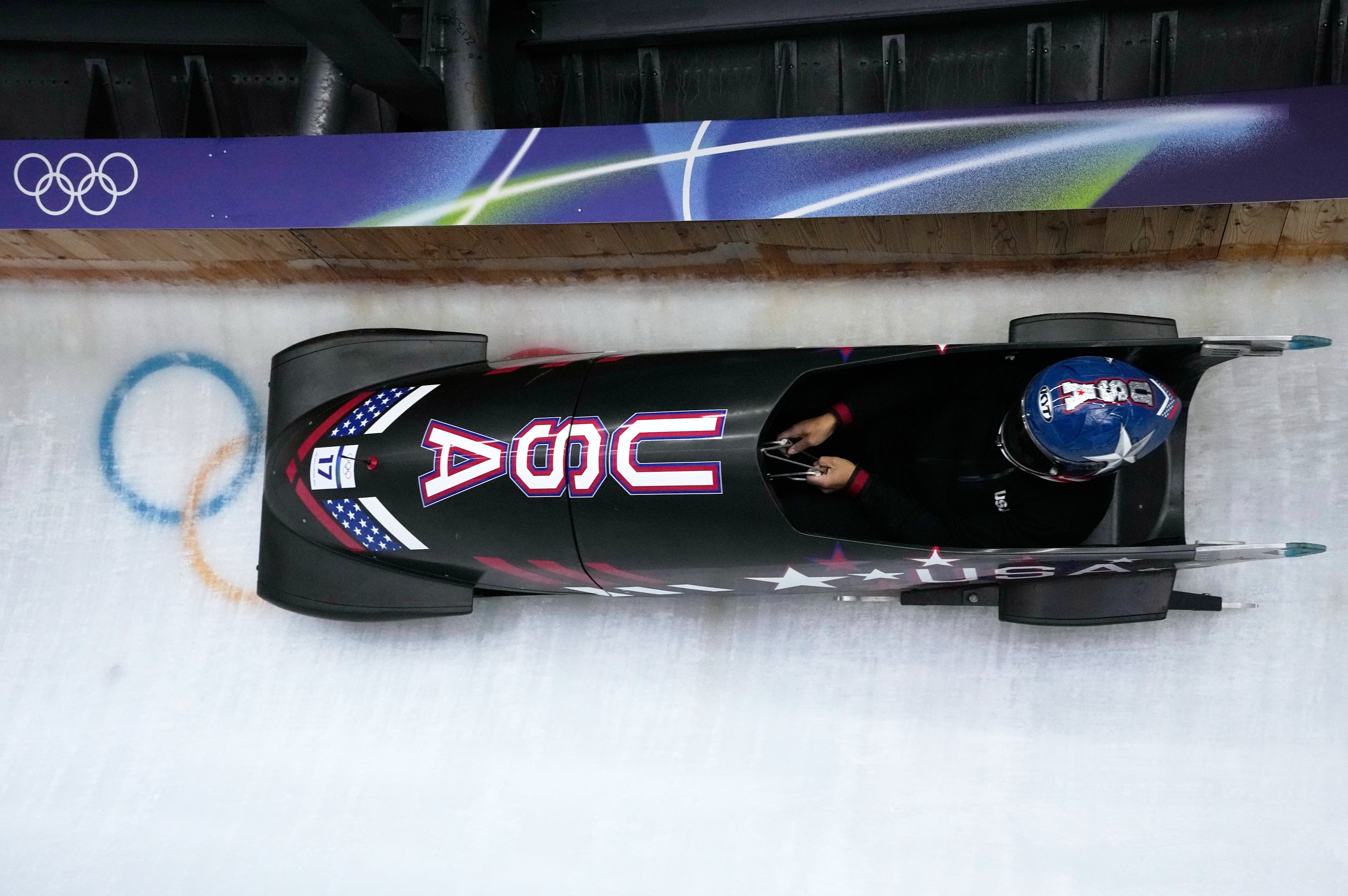Long jumper Al Mead among group of inductees
In 1968 on the south side of Chicago, a 9-year-old boy begged his friends to let him back in the game. It was just a pickup touch football game between youngsters. What could go wrong?
His friends were hesitant, but agreed. Little Al Mead, just a few months after having his left leg amputated, was back in the game. But it was not a smooth return to the playing field. Mead took a tumble. His prosthetic leg fell apart. It wouldn’t be the last time.
“The bottom portion of my leg, with my foot and the shoe, was just lying there on the field,” Mead recalls, 47 years later. “The kids were like ‘what is that?’ They knew right then that this was going to be an experience for everyone.”
What they didn’t know was they were gawking at a prosthetic of a future world-class athlete. Dejected, but not demoralized, Mead took his broken leg back to his prosthetist, who, just weeks earlier, had warned him to take it easy.
“I think he knew right then and there that he wasn’t going to be able to stop me from competing,” said Mead, who underwent an above-knee amputation of his left leg after an injury caused a severe circulation problem when he was 9.
The football mishap didn’t stop him. Nothing has.
Mead, 56, will be inducted into the Atlanta Sports Hall of Fame on Friday night. The award and induction ceremonies will take place at the Buckhead Theater. Festivities include a reception, silent auction and a parade of past inductees. Mead will be joined in the 2015 class by former Falcons coach Leeman Bennett (1977-82); longtime NBA sharpshooter Dale Ellis, who played at Marietta High School in the 1970s; former Georgia Tech football player George Morris, and champion golfer Charlie Yates.
For Mead, it’s the culmination of an inspirational athletic career that didn’t get off to a very promising start. Mead arrived at the 1988 Paralympics in Seoul, Korea, as the world-record holder for the 100 meters. He had competed in other major events, but this was the biggest and his first Paralympics.
“I was anticipating winning the 100-meter dash,” he said.
It didn’t happen. After 15 meters, his hydraulic unit on his prosthetic leg shut down. It was the first time he lost a competitive race in a major event. He made it over to the side of the track, glancing back to see his competition racing past him. He was devastated, but wouldn’t go home empty-handed. Mead regrouped, had his leg repaired and broke the world record in the long jump to bring home the gold medal.
“I don’t let things stop me,” Mead said. “I take the word ‘can’t’ out of my vocabulary, which is something I share in part of my story when I talk with kids, students and even adults. When you have a setback, it’s a setup for a comeback. That’s exactly what happened here.”
During a prolific athletic career, Mead won multiple gold medals and set several world and national records. He is one of only a few Americans who have carried both the Olympic and Paralympic torches and was an integral part of bringing the 1996 Paralympics to Atlanta.
Now an associate pastor at New Hope Baptist Church in Fayetteville, Mead said his faith, family, a dedicated prosthetist in Atlanta’s Larry Rice and those same friends who let him play in that first touch football game are the reasons he’s been able to overcome life obstacles.
“I’ve broken my leg plenty of times in competition,” Mead said. “But every time I broke it, they screwed it out, repaired it and I jumped right back in.”
He’s lived in Atlanta since his college days at Morehouse and has emerged as a popular inspirational speaker. He’s also an inspiration to his two daughters, Karen Ashley and Monique.
“They’ve always been fascinated that I was different from the other dads,” Mead said. “They were actually proud. I would go pick up my daughters from school, and the first thing they’d do was raise my pants so that they could show their friends my leg. I think it rubbed off them when they came of age and began to compete that they didn’t have any excuses — because daddy didn’t have any excuses.”


